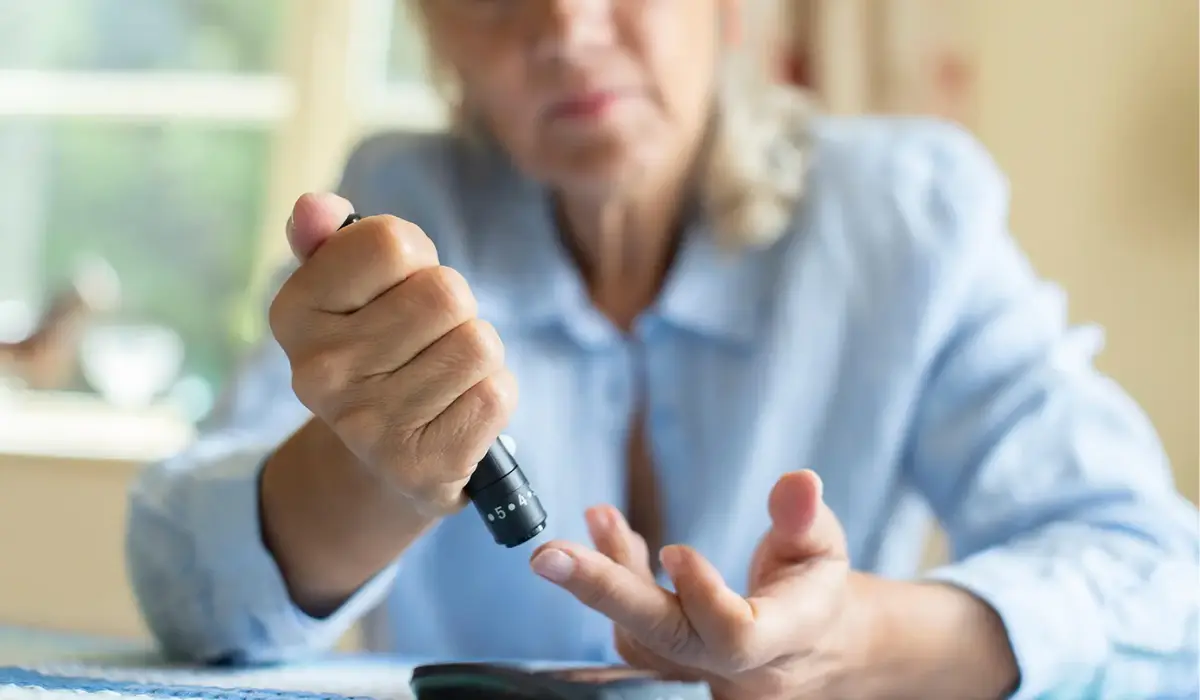Hey there, let’s talk about Type 2 diabetes – a real game-changer for millions around the globe. It often starts its journey in stealth mode, making it crucial for us to pick up on early signs.
In this friendly chat, we’ll explore the subtle hints that might signal the onset of Type 2 diabetes, helping you stay ahead and take charge of your health.
Understanding The Dynamics: Early Signs And Symptoms Of Type 2 Diabetes

Here are some of the early signs and symptoms that may indicate the onset of type 2 diabetes:
Frequent Urination (Polydipsia and Polyuria)
Ever notice that unquenchable thirst and the feeling like you’re always hitting the restroom? It could be your body’s way of telling you something. High blood sugar levels are like a disruptor, making your kidneys work extra hard. The result? You’re peeing more, getting dehydrated, and feeling like you can never get enough to drink.
Weight Loss
Losing weight without even trying? It might not be a cause for celebration. When your body struggles to use glucose properly, it starts breaking down muscle and fat for energy. Surprise weight loss might just be your body’s way of telling you it needs some attention.
Fatigue And Weakness
Feeling tired all the time, even after a good night’s sleep? Your body might be sending out an SOS. When it can’t turn glucose into energy efficiently, you end up with this persistent feeling of fatigue and weakness.
Blurred Vision
Eyes feeling a bit blurry lately? It could be linked to your blood sugar levels playing tricks on your eyes. Those high sugar levels can mess with the shape of your eye’s lens, causing your vision to go a bit wonky.
Slow-Healing Wounds And Infections
Ever wondered why that cut takes forever to heal or why you seem to catch every bug going around? Diabetes might be the culprit. High blood sugar levels can throw a wrench into your body’s healing mechanisms, making you more prone to infections.
Tingling or Numbness in Extremities (Peripheral Neuropathy)
Feeling tingling or numbness, especially in your hands and feet? Diabetes might be knocking on your door. As it progresses, it can mess with your nerves, leading to these weird sensations.
Increased Hunger
Hungry all the time, even after a good meal? Your body might be struggling to use glucose for energy, leaving you with persistent feelings of hunger.
Importance Of Early Diagnosis
Understanding these early signs is like decoding the whispers of Type 2 diabetes. It often starts with a prequel called prediabetes, where your blood sugar levels are higher than normal but not quite in the diabetes zone. Catching and addressing prediabetes can be a game-changer in preventing full-blown Type 2 diabetes.
Recognizing these signs isn’t just about knowing them it’s about taking action. Lifestyle changes, like tweaking your diet and getting more active, can work wonders. Sometimes, these changes can even reverse prediabetes, keeping diabetes at bay.
Regular check-ups are like health pit stops. For those with a family history or other risk factors, keeping an eye on blood sugar levels through tests is like having your car serviced regularly. It helps catch potential issues early on, giving you and your healthcare team the best shot at managing things effectively.
Genetics might load the gun, but lifestyle choices pull the trigger. Knowing your family history and understanding your risk factors is like having a roadmap for your health journey. It helps you make informed choices that can shape your future.
Lifestyle Modifications For Prevention And Management
Healthy Eating Habits
Picture your plate as a canvas, and your food choices as brush strokes. A balanced diet rich in whole foods and low in processed sugars can be a masterpiece for managing blood sugar levels.
Regular Physical Activity
Forget complicated workout routines think of physical activity as your body’s way of saying, “Let’s move!” It’s not just about weight management; it’s about keeping your body’s machinery in top shape.
Weight Management
Weight is just one of the notes played by your body, which acts as a finely tuned instrument. This is not only important for a ‘good look’ but is also tied to metabolism, insulin sensitivity, and the general health of a person!
Stress Management
Life is a rollercoaster, but chronic stress is like riding on it without a safety belt. Meditation or yoga, managing stress with a seatbelt, and keeping blood sugar levels in check
Verdict
Therefore, understanding the initial stages of type 2 diabetes can be considered a secret code to good health. This means tuning in with our bodies, comprehending how they are signaling us, and taking measures so that the body is always running smoothly.
With that information, you are no longer on a health journey you are the captain guiding yourself toward a future where diabetes takes up little space in your story. Cheers to good health!
FAQ
In their early stages, Type 2 diabetes signs can manifest themselves as chronic thirst and frequent urination, sudden unexplained weight loss, chronic fatigue, blurred vision, slow healing of sores and infections, tingling or num
Blame it on the elevated blood sugar levels. Your kidneys go into overdrive, trying to handle the excess glucose, and that results in more urine production. Cue the dehydration and the constant urge to grab a drink.
Weight loss, especially when you haven’t intentionally changed your diet or exercise routine, can be a heads-up for diabetes. It’s like your body’s way of saying, “Hey, something’s not right here,” as it turns to break down muscle and fat for energy.
Absolutely. Persistent fatigue and weakness might be your body’s way of signaling that it’s struggling to convert glucose into usable energy.
Think of it like a blood sugar rollercoaster affecting your eyes. High sugar levels can tweak the shape of your eye’s lens, leading to blurry vision.

